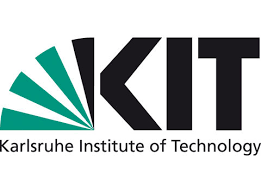Karlsruher Institute for Technology: High level of satisfaction with the study conditions at KIT
A joint study of all state universities in Baden-Württemberg, including the Karlsruhe Institute of Technology (KIT), shows: On average, graduates in the state have already arrived at work after two to three months. Half of them even managed to start their careers immediately after graduating. Another result of the study: 80 percent of the graduates of the KIT were very satisfied or satisfied with their studies. Graduates born between 2016 and 2018 were surveyed.
“How well the graduates make the transition from studies to professional life says a lot about their qualifications and thus also about the quality of university teaching,” says Professor Alexander Wanner, Vice President for Teaching and Academic Affairs at KIT. “The results of the current graduate survey confirm the high quality of training at KIT as well.”
On average, the KIT graduates surveyed found a job within three months of completing their studies, almost all – around 95 percent – after a year at the latest. The surveys also show that 83 percent of the graduates of the KIT are very satisfied or satisfied with their studies in retrospect. 80 percent would choose KIT again with a high degree of probability, 75 percent would choose the same course again.
“The results of the survey flow into the internal quality management as well as the internal accreditation procedure KIT-PLUS”, says Nadja Legrum-Khaled, head of the quality management department. “They complete our holistic view of the courses of study at KIT so that we can continuously develop them.” With KIT-PLUS, the KIT faculties can systematically analyze and advance the quality of their courses.
Very good results at all nine state universities in Baden-Württemberg
As part of the Baden-Württemberg graduate study, all nine state universities surveyed their graduates between 2018 and 2020 using a standardized questionnaire. The answers from around 23,400 people were included in the study. They show a high level of satisfaction (76 percent) with the study situation in Baden-Württemberg and the respective alma mater across all subject groups. Looking back, nine out of ten graduates would decide to study again. Almost all who had not started any further studies or a doctorate were employed at the latest one and a half years after their graduation. The clear majority of them (around 75 percent) assess their current professional situation positively and their job as adequate to their professional skills.
Master’s degree in demand, doctorate mainly in natural sciences and medicine
After completing a bachelor’s degree, around half of the graduates chose the option of joining a master’s degree. The majority, around two thirds, remained loyal to their university, eight percent chose a university abroad for their master’s degree. About a third were aiming for a doctorate, in medicine and the natural sciences even more than half.
To the Baden-Württemberg graduate study
The questionnaire for the graduate survey in Baden-Württemberg was developed in the “Graduate Study” working group of the state-wide network “Quality Development and Strategic Controlling” of the Baden-Württemberg universities. In order to do justice to the individual profiles of the individual universities, the questionnaire consists of a core questionnaire, which is binding for all project partners, as well as university-specific questions. The Albert Ludwig University of Freiburg, the Ruprecht Karls University of Heidelberg, the University of Hohenheim, the Karlsruhe Institute of Technology (KIT), the Universities of Konstanz, Mannheim and Stuttgart as well as the Eberhard Karls University of Tübingen and the University of Ulm took part in the survey part.
The graduate survey from Baden-Württemberg has been taking place regularly since 2013, and all Baden-Württemberg universities have been participating in the study since 2017.
Results of the Baden-Württemberg graduate study and evaluation of results for KIT: https://www.sek.kit.edu/5495.php
As “The Research University in the Helmholtz Association”, KIT creates and imparts knowledge for society and the environment. The aim is to make significant contributions to global challenges in the fields of energy, mobility and information. To this end, around 9,600 employees work together on a broad disciplinary basis in the natural, engineering, economic, humanities and social sciences. The KIT prepares its 23,300 students for responsible tasks in society, economy and science through a research-oriented university course. The innovation activity at KIT bridges the gap between knowledge and application for social benefit, economic prosperity and the preservation of our natural foundations of life.

